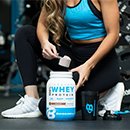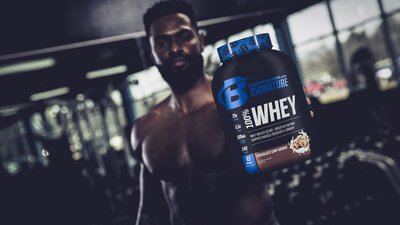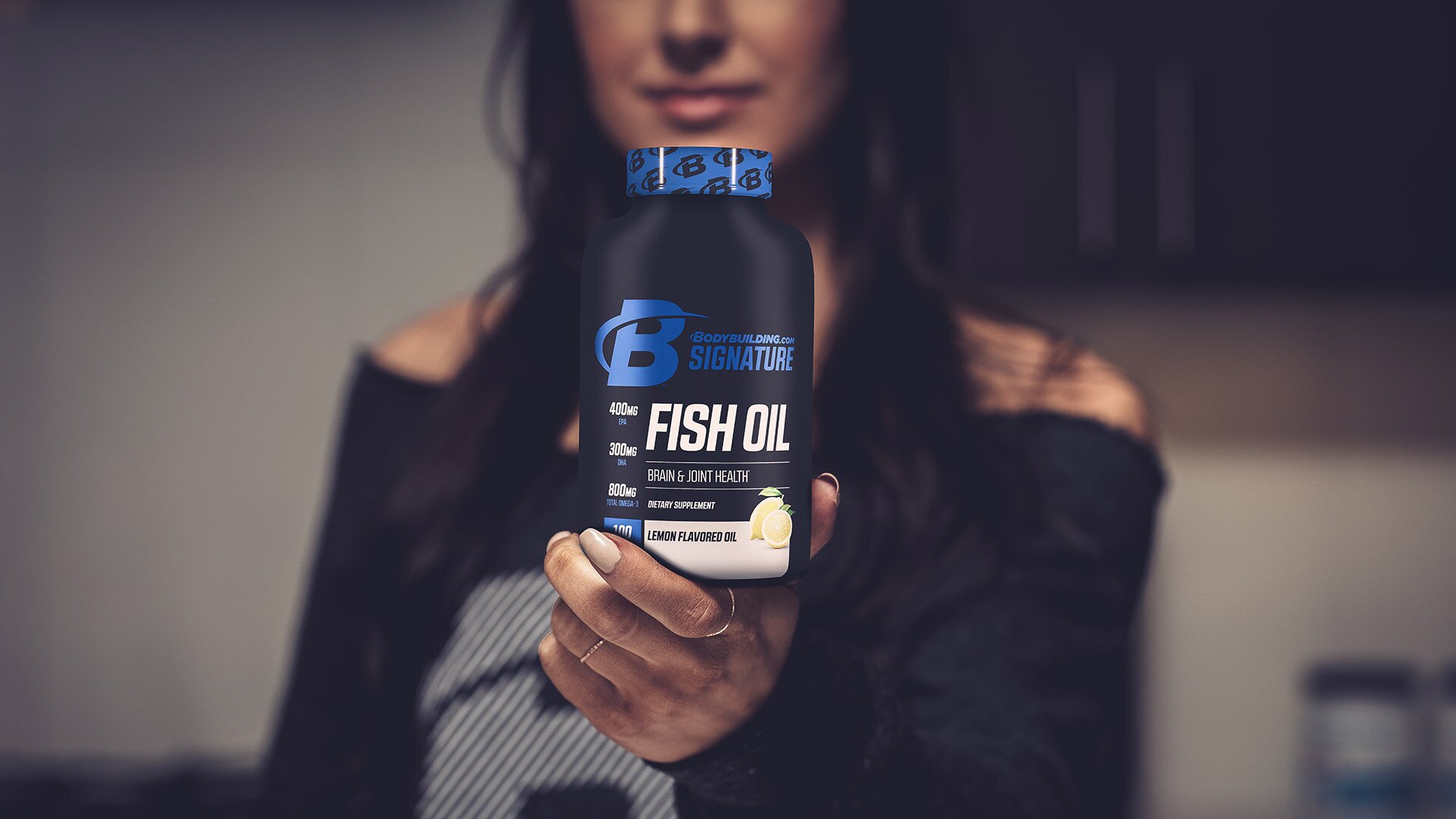Why: Protein is the only major nutrient that stimulates muscle protein synthesis, the process by which your body repairs and grows muscle. But it also improves insulin sensitivity and blood glucose control, supports healthy blood pressure and inflammatory response, reduces age- or inactivity-induced losses in muscle and strength, and is critical for a robust immune system. Plus, protein increases calorie burning (thermogenesis) and reduces hunger more than either carbohydrates or fat.
And no, it's not just for when you're looking to gain weight. When combined with a calorie-restricted diet, supplementing with protein also increases the loss of body fat and weight, and reduces the loss of lean body mass.
In today's market there are plenty of options for where you can get your protein: dairy, egg, chicken or other animal sources, vegetable (soy, rice, pumpkin, hemp, etc.), fish, algae like spirulina—the list goes on and on. However, I'm of the opinion that the conversation begins with whey.
Why? Because for the human body, whey is literally the protein of life. Whey makes up almost 92 percent of the total protein present within human breast milk at early lactation, and is still about 55-60 percent of the total protein in breast milk when children have been fed for more than two years.
All other proteins are fine as a matter of variety and a source of amino acids, but whey is the most popular for a good reason.
What: If your goal is to get bigger and stronger, any whey protein concentrate (WPC) will do just fine. If you're following a carb- or fat-restricted diet, or if you have a genuine lactose allergy, then reach for a whey protein isolate (WPI).
A hydrolyzed ("pre-digested") WPC or WPI, though more expensive, can also be used if you typically get an upset stomach by consuming dairy proteins, or if you want more insulin response. Plus, some evidence suggests that extensively hydrolyzed forms of whey may promote greater fat burning than other forms of whey. Data is equivocal if moderately hydrolyzed whey can provide the same benefit, and no quality data supports any advantage of using minimally hydrolyzed whey.
How: The majority of the studies support consuming at least 20 grams of whey per serving, at least once, but possibly multiple times per day. To help reduce appetite and lower blood glucose response to a meal, drink a whey shake at least 30 minutes prior to eating a meal. Around exercise, there's really no wrong or conclusively right time to consume whey: pre-, intra-, or post-workout. Each has its potential benefit, depending upon other factors. The main point is, consuming whey around the time of your workouts can amplify the positive effects of your training.



